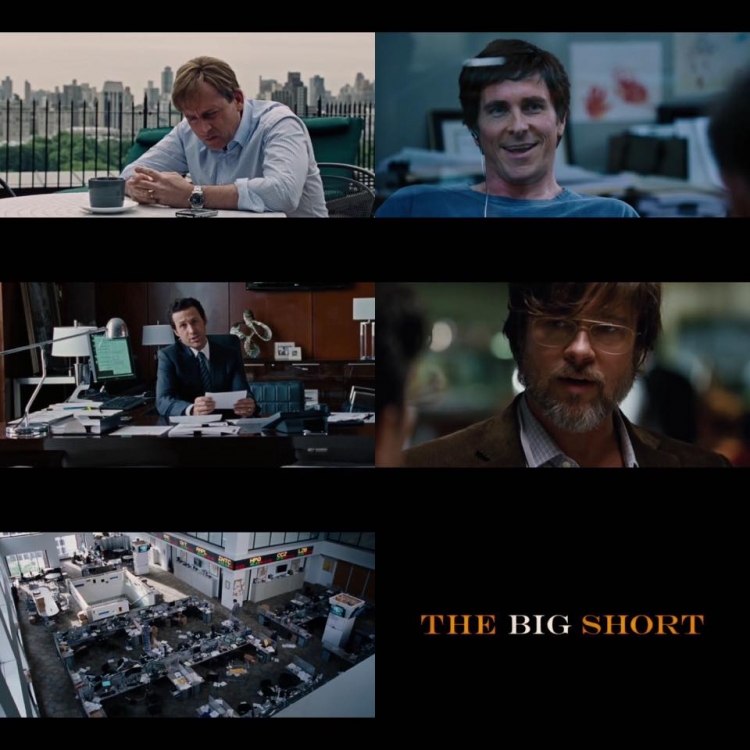"The Big Short" Reviewed by a Finance Dummy (and Human Being)

As a non-American liberal arts student, I have absolutely no knowledge of finance. At first, I didn't even understand the film’s title, The Big Short. After checking out the French translation Casse du Siècle, meaning the robbery of the century, I assumed it was going to be another 'Ocean's Twenty-Whatever'-type film. Then I saw the trailer and realized that it was about the 2008 Wall Street crash that led to a worldwide economic crisis. I decided to use my ignorance on the topic to convince my boyfriend to go see it with me, rather than the "Ryan Gosling is super hot let's go see him on a big screen" argument, which is also completely valid.
Once in front of the screen, I was extremely confused by the flood of financial jargon: CDO's, bonds, mortgage-backed-securities, credit-default-swaps, etc. I started to get anxious about the possibility that I had just paid 11€ to stare at Christian Bale, when I could have done that at home. Thankfully, I quickly started to get caught up in each character's story: I felt sorry for one-eyed Christian Bale and his awkward social skills, and got annoyed at Steve Carell and his Wall Street attitude. Then, finally, it happened: they started explaining the financial gibberish. If I'm honest, they did far more than just explaining: they made Ryan Gosling, Selena Gomez, and Margot Robbie (in a bubble-bath, no less) explain it to us directly, in words that I could actually comprehend. If you would rather focus on the visuals than have to pay attention to what Margot Robbie is saying, read this article for the explanations before you go.
Before that point, I'd felt like a moron for not being able to understand any of their terminology, but their sympathetic explanations made me in the loop. Every other aspect of the movie fell perfectly into place: the character development, Ryan Gosling addressing me us and insisting on the factuality of the events depicted on screen, great plot twists, suspense, and feelings ranging from anger to laughter. By making sure the audience truly understood the basis of the financial crisis, the director allowed me to understand what, how, and why the 2008 crisis happened. By the end of the movie, I felt able to recognize all of the issues in the Western financial system, which two hours earlier I could not have given a damn about.
As the movie advanced towards its big finish, it got more and more emotional and profound, and so did I: what started as a surprisingly funny film about finance and a bunch of beautiful geeky rebels started to look a lot like a depressing documentary about everything that is wrong in the world.
Spoilers beyond this point: Don't worry, the good guys win in the end. But is it really a win? Is it really a win to see thousands of people lose their homes and jobs, all at once and with no warning? As if that wasn't bad enough, the worst part, as they cleverly point out in the film, is that it is happening again, and that, we can undoubtedly call a huge failure. I left the cinema that night feeling torn between admiration and disgust. I spent my trip home reflecting on how you hope, you dream, you fight for justice and truth, but once the truth is out, you realize that there is not much you can do about injustice. Then what do you do?
Ultimately, despite some critics and viewers repeatedly complaining about the length and rhythm of the film, it is a must-see. Not only did it teach me the basics of finance and gave me the necessary push to learn more, it also enlightened me about the world that we live in. And imagining Christian Bale explaining financial issues in his Batman suit isn't so bad.
Check out the trailer for the movie:







